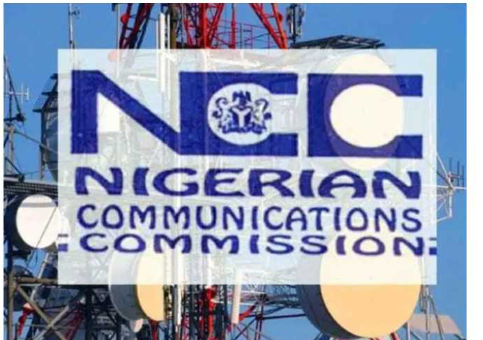News
High Operating Costs: NCC, stakeholders kick as telcos threaten service outage

By Kayode Sanni-Arewa
Telecom operators have warned that the excruciating financial obligations they are burdened with at the moment may push them to adopt load-shedding formula of the power sector in providing telecom services in the country.
But the regulator, the Nigerian Communications Commission, NCC, in a swift reaction, said it would not be arm-twisted by the operators’ threat.
Load-shedding is a formula that the electric power provider uses to relieve stress on a primary energy source when demand for electricity is greater than the primary power source.
It is a service formula which denies power supply to an area at a time just to relieve stress on the power source.
Chairman of the umbrella body of the telcos, Engr Gbenga Adebayo, disclosed this at an event put together by the Financial Derivatives Company, FDC, titled ‘’Telecom Industry 2.0: The Next Investment Frontier in Nigeria.’’
Addressing concerns of debilitating telecom services in the country, Adebayo said the country’s economic woes have impacted the telcos so badly, to the extent that they might not be able to service all their facilities at the same time.
Adebayo said the point at which telcos have found themselves at the moment is where they could only service a part of their facilities at a time, meaning that the area they are able to service will enjoy better services, while other areas not so lucky at the time may just have to bear epileptic services.
Telecoms sector, victim of its own success ’
Adebayo said: “The question to ask is why has government found it difficult to take advantage of different advocacies to sustain a healthy telecom sector despite these advocaies coming from verified data and indicies?
‘’I will say it is because the telecom sector has become a victim of its own successes. The behaviour of the public sector towards using the sector to better the economy is at variance with what is obtainable in other climes.
‘’The behavior of those that superintend over government agencies is poor and anthitetical to progress. Remember that when the operator signed agreement to provide telecom services in the country in 2001, the part Nigerian government signed was to provide 18 hours of power supply to the operators.
‘’That part of the bargain has not been fulfilled since then. Yet, the greater part of our operating expenditure, OPEX is on power.
“Multiple taxation from different government and non-government agencies is another hydra-headed problem, just as the banking sector debt to the telcos have also culminated to the poor state of infrastructure maintenance in the telecom sector.
“As we speak, there is an Association of Telecom Landlords whose primary aim is to fix rental charges for telecom facility deployments. This will be in addition to over 40 different taxes and levies the telcos face in the course of their operations.
“With all these, services will continue to be impaired. Today, we are heading to a situation where telecom services will be provided in parts because telcos may not be able to service all their sites at the same time.”
Price increase has become imperative —MTN CEO
Corroborating Adebayo was the CEO of MTN Mr Carl Toriola who joined the meeting on Zoom.
Toriola said that the severe sustainability challenges the telcos currently face need urgent attention to salvage the entore ICT sector.
He said despite the growth over the past two decades of liberalisation, the sector is now threatened by rising costs and unsustainable pricing.
He said: “Price increase has become imperative, it is now an absolute necessity because the sector is in an intensive care unit and needs urgent rescue to avoid total collapse”.
Expressing concerns that the sector will lose more investments as the rot digs in, Toriola said: our fundamental challenge is that the financial returns expected from the industry are now so low that they threaten its very survival.
“Nobody is going to put in $1 with the expected return of 60 cents on the dollar,” he said.
“There’s no way under the surface of the earth, in the kind of inflationary environment and forex devaluation that we’ve seen, that an industry can maintain prices the same for 11 years.
“The telecoms sector has faced escalating costs across the board — from the cost of capital to the soaring expenses of maintaining infrastructure like base stations and diesel generators.
“Without adjustments to pricing, the industry’s ability to function and attract investment is in jeopardy.”
However, the telcos’ position has drawn reactions from critical stakeholders, including the regulator, the Nigerian Communications Commission, NCC, National Association of telecom subscribers of Nigeria, NATCOMS, among others.
NCC reacts
A reliable source at the NCC said the regulator would not be arm-twisted by the telcos’ threat because they are known to be deploying several tactics to get the regulator to approve tariff hike for them.
He said: “We agree that the operating environment is difficult but it is not only for the telcos, every other sector is going through same hard times. If the operators say they cannot provide quality services because of economic conditions, it is not strange. It is their strategy.
‘’The reason they have not gone to where you have access gaps is because of low revenue they could attract in those places. This latest load-shedding formula is a subtle threat to get the regulator approve tariff hike, which they know is not possible that way.
‘’We cannot be arm-twisted by subtle threats “ the source who didn’t want his name mentioned, said.
Subscribers ‘ll hold NCC responsible—NATCOM
But in a sharp reaction, the President of NATCOMs, Chief Deolu Ogubanjo, said the subscribers will hold the NCC responsible if the industry collapses because, according to him, load-shedding will collapse not only the telecom sector but banking, education, health and other sectors which are now dependent on telecom services.
He said: “Telecom has become a legacy with the Nigerian society now, because telephone is life. In several stakeholder meetings, we have advocated that the telcos should be allowed a decent level of tariff pricing to tally with the high operating cost and the regulator is not doing anything about it when it has seen that these telcos are crashing under the weight of operating costs. It is not fair.
‘’It is possible that their OPEX may not be able to carry routine maintenances and what that may lead to is service downtime as we are witnessing now. If anything happens to the telecom sector today, the banking, education, health and entertainment sectors among others will go with it.
‘’This is why the regulator should act fast, else subscribers will hold it responsible if the industry collapses,” he threatened.
huge foreign direct investment into the country.
On infrastructure deficits, the telcos complained they still lacked access to essential telecommunication services due to a myriad of challenges, including multiple taxation and regulations and prohibitive Right of Way (RoW) charges, inadequate electric power supply and vandalism of telecommunications infrastructure.
They also advocated legislation that designates telecommunications infrastructure as critical national infrastructure as a way of protecting assets and network infrastructure in the country, considering the escalating security threats facing telecommunications infrastructure in Nigeria.
The telcos also claimed that telecommunications infrastructure development required substantial investments in network expansion, maintenance, and technology upgrades.
They added that despite the adverse economic headwinds, the industry remained the only one yet to review its general service pricing framework upward in the last eleven years, primarily due to regulatory constraints.
They also argued that for a fully liberalized and deregulated sector, the current price control mechanism, which is not aligned with economic realities, threatened the industry’s sustainability and could erode investors’ confidence.
The joint statement also asked government to sustain the culture of independence in the regulatory landscape as safeguard against undue influence and unwholesome incursion into the Nigerian Communications Commission, NCC’s domain.
They believe regulatory independence would inspire trust in the telecommunications sector and encourage investment.
Stakeholders, analysts side with telcos
Meanwhile, stakeholders and telecom industry analysts have supported the telcos’ call for a flexible pricing model, saying it would open doors of more opportunities for the sector.
A senior lecturer and former HOD, Computer and Information Sciences Department, Trinity University, Dr. Falade Muritala Adesola, said: “Pricing autonomy is a linchpin for industry sustainability. The ability to set cost-reflective tariffs is indispensable for ensuring adequate returns on investment and fostering long-term viability.
‘’Telecom operators require a more transparent and collaborative approach to tariff adjustments, emphasizing the importance of a pricing framework aligned with operational realities.
‘’The current pricing window, sanctioned by regulators, is a foundation, but the industry needs greater flexibility to navigate cost fluctuations while ensuring service quality and accessibility remain uncompromised.
“The clamour for cost-reflective tariffs is not merely about short-term gains but a strategic imperative to sustain the sector’s growth trajectory. The transition from 2G to 5G and with 6G on the way symbolizes the industry’s evolution, made possible by substantial investments that fuel innovation and expand service capabilities. However, without conducive regulatory frameworks that incentivize investment, the industry risks stagnation, jeopardizing future advancements and undermining service availability.
“The telecommunications industry in Nigeria is currently at a crossroads where infrastructural challenges, pricing dynamics, and regulatory frameworks intersect, offering a unique opportunity for swift and collective action.
‘’A thriving and resilient telecommunications ecosystem has the potential to empower individuals, drive economic growth and enrich lives across the nation of Nigeria. Whilst the industry regulator has delivered commendably, prevailing realities demand a new approach to ensure continued viability of the sector.”
News
CBN announces revised documentation requirements for PAPSS transactions

The Central Bank of Nigeria (CBN) has announced a revised documentation requirement for transactions conducted through the Pan-African Payment and Settlement System (PAPSS) in Nigeria.
This was disclosed in a statement issued by the apex bank’s acting Director, Corporate Communications, Mrs. Hakama Sidi Ali
The CBN said the new initiative is part of its ongoing commitment to foster seamless intra-African trade, financial inclusion, and operational efficiency for Nigerians engaging in cross-border payments within Africa.
Launched by Afreximbank in partnership with the African Union and the African Continental Free Trade Area (AfCFTA) secretariat in January 2022, PAPSS serves as a centralized payment and settlement platform that enables instant, secure, and efficient cross-border transactions throughout Africa.
By facilitating payments in local currencies, PAPSS minimizes reliance on third-party currencies, reduces transaction costs, and supports the rapid expansion of trade under the AfCFTA.
In a recent circular referenced TED/FEM/PUB/FPC/001/006 issued on April 28, 2025, CBN outlined the key changes to the documentation requirements associated with PAPSS transactions.
The key changes it added take effect immediately and include simplified documentation for low-value transactions, which allows customers to now use basic KYC and AML documents provided to their authorized dealer banks for low-value transactions of up to $2,000 and $5,000 equivalent in naira for individuals and corporate bodies, respectively.
“For transactions above the thresholds, all documentation as stipulated in the CBN foreign exchange manual and related circulars remains mandatory,” the bank said.
Also, the CBN added that applicants are responsible for ensuring all regulatory documents are available to facilitate the clearance of goods, as required by relevant government agencies.
“Authorized dealer banks may now source foreign exchange for PAPSS settlements through the Nigerian foreign exchange market, without recourse to the CBN.
“All export proceeds repatriated via PAPSS shall be certified by the relevant processing banks.
“The Central Bank of Nigeria urges all banks to adopt PAPSS and commence originating transactions in line with this new policy.
“In addition, CBN encourages exporters, importers, and individuals to familiarize themselves with the new requirements and leverage PAPSS for cross-border transactions within Africa,” the statement said.
News
Reps Set Stage for Nigeria’s First Legislative Conference on Renewable Energy

By Gloria Ikibah
The House of Representatives is set to host the country’s first National Legislative Conference on Renewable Energy, aimed at driving new laws, attracting investment, and pushing Nigeria further along its energy transition journey.
This was revealed during a press briefing by the Chairman, House Committee on Renewable Energy, Rep. Afam Victor Ogene, who described the event as a turning point for energy legislation in Nigeria.
He said: “The conference aims at bringing together key stakeholders and industry players to discuss renewable energy legislations, energy transition, renewable energy financing, investment opportunities and related matters.
“It’s about developing a national legislative framework on renewable energy”.
The conference, which is being organised by the House Committee on Renewable Energy in partnership with the Office of the Speaker of the House of Representatives, and the United Nations Development Programme (UNDP), will take place under the UNDP Parliamentary Development Program.
Rep. Ogene noted that recent legal reforms have created space for state governments to play a more active role in Nigeria’s power sector. He pointed to the Fifth Alteration Bill 2022 (No.33), now signed into law, which allows states to legislate on electricity matters within the national grid. Before now, states could only act on off-grid power.
In addition, he highlighted the Electricity Act of 2023, which came into effect in February 2024.
“It permits states to issue licenses for all electricity activities – generation, transmission and distribution across the entire power sector value chain,” he said.
The Committee Chairman further stated that the new National Integrated Electricity Policy, expected in 2025, will guide states in forming new electricity markets, where solar power and other renewable sources will be key to reaching underserved communities.
Ogene explained, “The conference has three clear objectives:
“To promote dialogue among legislators, experts and stakeholders on critical legislative priorities.
“To establish a coordinated platform for federal and state lawmakers, and to produce a clear, time-bound legislative action plan.
“International partners are also on board. The Inter-Parliamentary Union (IPU) will participate, and parliaments from South Africa, Ghana and Gambia have confirmed attendance. Ghana is sending a three-man delegation led by the Deputy Speaker, Rt. Hon. Alban Kingsford Bagbin”.
In another major highlight, the Netherlands-based platform INCLUDE will host a Pan-African Legislative Dialogue session on renewable energy, to be chaired by the Hon. Speaker, Rt. Hon. Abbas Tajudeen.
“The session will focus on how to establish a unified legislative framework on renewable energy development, investment and financing.
“The time has come for us to act. This is not just another conference – it is the foundation of Nigeria’s renewable energy future”, Ogene added.
Expected outcomes from the conference include new policy and legislative reform proposals to boost renewable energy use, as well as draft laws that will encourage public and private sector investment.
Other goals are to enhance collaboration between federal and state lawmakers, raise public awareness, and roll out a practical roadmap for implementation and progress tracking.
The event will also feature a technology showcase of renewable energy innovations and business opportunities.
News
Alleged money laundering: EFCC produces Aisha Achimugu in court

By Francesca Hangeior
The operatives of the Economic and Financial Crimes Commission (EFCC), on Wednesday, arrived at the Federal High Court in Abuja with the businesswoman, Aisha Achimugu, as ordered by the court.
Achimugu, who was sandwiched by two female EFCC officers, arrived in court at about 11:35 am.
It could be recalled that Justice Inyang Ekwo had, on Monday, ordered the industrialist, alleged to have fled the country, to honour the invitation by the anti-graft agency on Tuesday at noon.
Justice Ekwo, who gave the order in a short ruling, also ordered the EFCC, upon the appearance of Achimugu at its office, to return with her to court on Wednesday for a report.
Achimugu was, however, said to have been arrested by the EFCC’s operatives on her arrival abroad at about 5 am and kept in custody.
-

 Metro10 hours ago
Metro10 hours agoGunmen storm University of Benin teaching hospital, kill doctor
-

 Politics22 hours ago
Politics22 hours agoJust in: Ex- Gov Okowa accepts betraying Southern Nigeria, laments running with Atiku
-

 Metro10 hours ago
Metro10 hours agoFCTA destroys 601 motorbikes over violations
-

 News10 hours ago
News10 hours agoJust in: FG declares tomorrow public holiday
-

 News22 hours ago
News22 hours agoBoko Haram Kill Mourners, Kidnap Others In Borno
-

 News2 hours ago
News2 hours agoAlleged money laundering: EFCC produces Aisha Achimugu in court
-

 News22 hours ago
News22 hours agoDeputy Speaker Leads Defection of PDP Stalwart Chris Igwe, 13,000 Followers to APC In Abia
-

 News3 hours ago
News3 hours agoJUST IN: Major General Paul Ufuoma Omu Rtd, dies at 84





